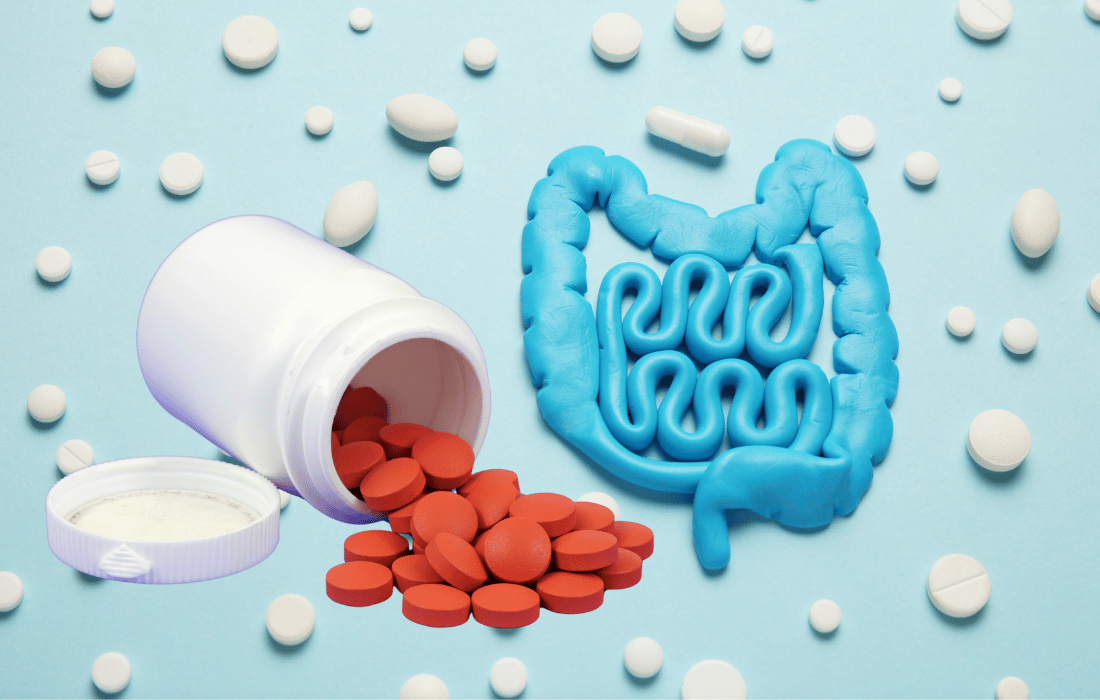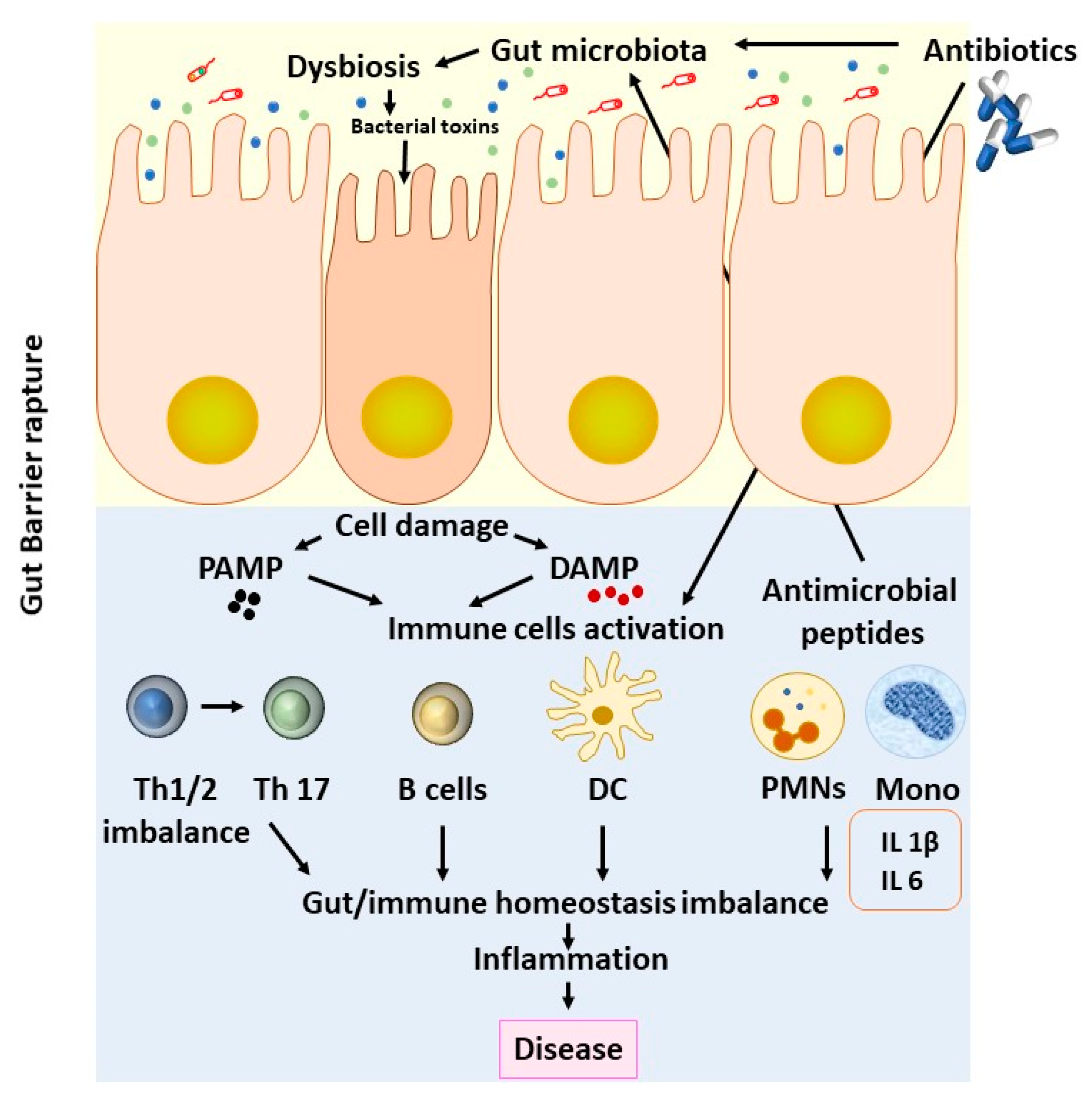For most men, medications like Tylenol, ibuprofen, or a quick course of antibiotics are easy fixes—a straightforward way to get back to your workouts, work, or weekend plans without being slowed down. But what if these simple meds are silently sabotaging more than your gut? What if they wear down your mental resilience, gut health, and overall physical gains?
The emerging science around the gut-brain connection, microbiome health, and how our bodies respond to frequent use of these medications is eye-opening. Men who prioritize performance, physical resilience, and overall well-being need to know the real costs of these common meds. Let’s break down how they affect our gut, brain, and body—and what you can do to support a stronger foundation.
Gut Health and Your Mental Edge: The Connection Every Man Needs to Understand
We tend to think of our brain and gut as separate systems. In reality, the two are linked in ways that can make or break your mental game, energy, and even how motivated you feel to train or take on challenges. This link is known as the gut-brain axis, and it’s influenced by everything we put into our bodies—including medications.
The gut houses trillions of bacteria and fungi that support immune health, hormone balance, and neurotransmitter production (think dopamine and serotonin—key players in mood, motivation, and focus). But common medications, particularly NSAIDs, acetaminophen, and antibiotics, are capable of disrupting this delicate balance. When we take these meds frequently, we risk weakening our gut lining, undermining the gut-brain barrier, and setting off a chain reaction that can affect our mental and physical performance.
NSAIDs: Fast Pain Relief, Long-Term Gut Damage
For any guy who’s spent time in the gym or on the field, NSAIDs like ibuprofen are a go-to for post-workout soreness, injury recovery, or just getting through the day. But here’s the kicker: these painkillers don’t just relieve pain—they also shut down prostaglandins, the same chemicals that protect your gut lining.
The result? Increased intestinal permeability, also known as “leaky gut.” This condition allows toxins, bacteria, and undigested food particles to slip into the bloodstream, triggering low-grade inflammation that can wear down your body’s resilience over time. And as studies are now revealing, chronic inflammation is linked to more than just gut issues—it’s tied to conditions like heart disease, autoimmune disorders, and metabolic problems.
The Hidden Cost to the Liver: Acetaminophen’s Toll on Men’s Health
Tylenol, or acetaminophen, may seem like a harmless way to manage pain. But it’s a heavy hitter when it comes to liver health. Your liver is responsible for detoxing everything you put in your body, including medications. However, acetaminophen produces a toxic byproduct called NAPQI. Normally, your liver can neutralize this toxin with glutathione, a powerful antioxidant it makes on its own. But here’s the catch: frequent use of acetaminophen can deplete your liver’s glutathione stores, putting stress on liver cells and leading to long-term damage.
For men who care about staying lean, energized, and strong, protecting your liver is critical. The liver isn’t just a “detox” organ; it’s vital for metabolizing fats, balancing hormones, and keeping inflammation in check. Overloading it with acetaminophen is a fast track to undermining your body’s peak performance.
Antibiotics: The Gut-Brain Side Effect No One’s Talking About
When a bacterial infection hits, antibiotics are essential. But these meds don’t just kill off harmful bacteria; they wipe out entire populations of beneficial gut bacteria too. Research now shows that even a single course of antibiotics can disturb the gut microbiome for up to a year, increasing susceptibility to digestive issues, immune dysfunction, and mental health struggles.
The latest studies reveal a clear link between antibiotics and mood disorders. For men who value mental resilience, this is serious. Within a year of taking antibiotics, the risk of developing depression can go up by 24%, and if you need two courses in the same year, that risk jumps to 44%.
Why? Because when beneficial bacteria in the gut are disrupted, neurotransmitter production can plummet. Suddenly, the gut-brain axis is out of balance, impacting mood, focus, and drive. As more men face mental health challenges in high-stress environments, safeguarding the gut-brain connection could be a key component to building long-term resilience.
The Gut’s Role in Immune Defense and Athletic Performance
One thing that every active man should know is that your gut health isn’t just about digestion—it’s the foundation of your immune health, too. A strong gut microbiome is your first line of defense against infections, pathogens, and inflammation. When antibiotics or painkillers disrupt this balance, opportunistic pathogens like Candida can take over, weakening your immune system and paving the way for more frequent illness.
Antacids and the Acid Issue: Another Hidden Threat to Gut Health
Antacids and proton pump inhibitors (PPIs) are commonly prescribed for acid reflux or heartburn. But by neutralizing stomach acid, these medications throw off the body’s natural ability to kill harmful bacteria and digest nutrients efficiently. Long-term use is associated with gut microbiome changes and an increased risk of infections. For men who need peak energy and nutrient absorption, these meds can be a hidden obstacle to achieving their goals.
Protecting Your Gut and Gains: Healthier Alternatives
So, what’s the solution? Modern medicine has its place, but when it comes to long-term health, it’s time to build a broader toolkit for managing pain, inflammation, and digestive health. Here are some strategies to consider if you’re aiming for peak performance without sacrificing gut health.
1. Identify the Root Cause of Pain and Discomfort
Before you reach for a painkiller, take a beat and consider what might be causing the issue. Is it poor posture? Dehydration? Tight muscles? Addressing these root causes can often resolve pain more effectively than masking it with meds and without the side effects.
2. Anti-Inflammatory Superfoods for Natural Relief
When you need relief, there are foods that can help. Turmeric, ginger, and foods rich in omega-3s (like salmon and walnuts) are powerful anti-inflammatories that reduce pain and support muscle recovery. Turmeric, in particular, has been shown to be as effective as some NSAIDs at managing pain, without the gut-damaging side effects.
3. Support Your Microbiome With Prebiotic and Probiotic Foods
If you’ve taken antibiotics or rely on medication regularly, it’s essential to support your gut. Probiotic-rich foods like yogurt, sauerkraut, and kimchi help reintroduce beneficial bacteria, while prebiotic foods (like garlic, onions, and fiber-rich veggies) feed them. A strong gut microbiome can better resist future infections, digestive issues, and inflammation.
4. Consider Liver-Supporting Supplements
For men who use pain meds frequently, liver support is essential. Milk thistle, NAC (N-acetyl cysteine), and alpha-lipoic acid are all known for their liver-protective benefits. By enhancing your body’s natural detox capabilities, you can offset some of the stress caused by frequent acetaminophen or other medications.
5. Stress Management and Mental Clarity
Chronic pain and discomfort often have a stress component. Meditation, breathing exercises, and mindfulness are not just for managing stress—they can also help lower inflammation, support digestion, and improve mental focus. For men looking to optimize, these practices can enhance both physical and mental performance.
Rethinking the Quick Fix Mentality
Reaching for a quick fix has become second nature, but it’s time to start questioning what’s in the bottle before popping it. Pain meds, antibiotics, and antacids may solve immediate problems, but the hidden costs to our gut, liver, and mental health are worth considering. When you approach health from a place of intention, you’re not just treating symptoms; you’re creating a stronger, more resilient body and mind.
Building a lifestyle around root-cause resolution and natural support can give you that edge. Remember: health is an investment and every choice matters. Choose wisely, and your body will thank you with better performance, clearer mental resilience, and a foundation of health that will carry you through.









